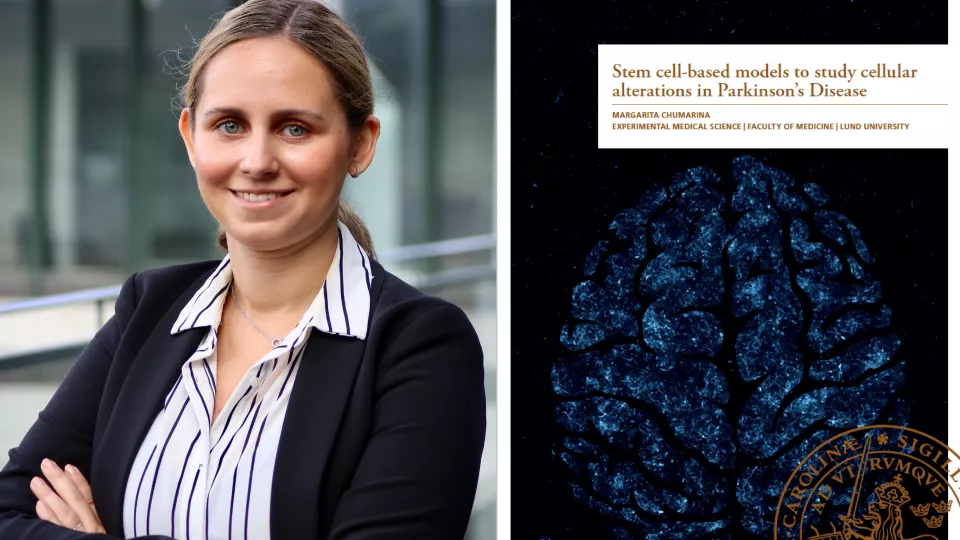Margarita Chumarina, from the iPSC laboratory for CNS disease modeling, will be defending her PhD thesis on Wednesday 15th of January. Researching in the group led by Laurent Roybon, Margarita has been utilizing stem cell-based models to study cellular alterations in Parkinson’s disease. Here, Margarita answers a few questions about her research and time spent at Lund Stem Cell Center.
What have you been working with during your PhD?
That’s all in the name of our lab – the iPSC Laboratory for CNS disease modeling. I have mainly been generating iPSCs from primary cells of patients diagnosed with Parkinson’s disease and differentiating these into different types of neurons, as well as astrocytes and oligodendrocytes. Using this approach, we can study what goes on in these cells in relation to the disease.
My research has been mostly focused on familial cases of Parkinson’s disease, that may differ from the most common sporadic cases, but still provide invaluable clues to cellular alterations behind disease pathology. My main project has involved the use of patient-derived iPSCs to study neuronal pathology in a patient with a novel Parkinson’s-related mutation in the POLG1 gene, encoding for a mitochondrial DNA polymerase.
Why is this sort of research important?
For a more complete understanding of the disease. Parkinson’s was originally thought to be a simple and straight forward disease with one cell type affected. However, it is now clear that many different cell types in different areas of the brain are involved. The pathology of patients is much more heterogenic than originally believed, with Parkinson’s cases having different altered pathways, and this is an essential aspect to understand, especially when it comes to treating the disease.
What excites you most about your work?
Getting results! Maybe not the ones you expected, but seeing some differences. When I started my research, I expect to get clear answers to our hypotheses, but it often doesn’t work like that, especially with human iPSCs. Here, we are not overexpressing a mutant gene in a cell line, but directly working with the cells of the patient. People are all different in terms of their genetic material, which makes a disease such as Parkinson’s extremely difficult to dissect. However, really seeing some patterns emerge that may be relevant and important for the disease is the most exciting part, because at the end of the day the goal is to help people.
What has been the toughest part?
As anyone who works with stem cells in culture will tell you there is a lot of weekend work and crazy hours, as the cells don’t care about holidays or planned vacations, they need their care. They are basically like babies…. the most demanding things ever!
How did you end up in Lund doing a PhD?
I’m originally from Russia and I moved to the U.K. for my undergraduate education at Manchester University and after that to Glasgow for my Masters. I was not sure as to what I wanted to do next, but I was drawn to neuroscience and wanted to continue my research career in this field, particularly with stem cells. I stumbled across the Preparatory Programme at Lund University and this was perfect, so I started my studies with Laurent Roybon and this led to a PhD!
What are your plans for after your defence?
That is a tough one! I’m hoping to transfer into the life science industry and work somewhere with product development or product management, although I’m keeping my options open.
What do you like to do when you are not taking care of stem cells?
I really enjoy going to theatre, opera and ballet. I used to do a bit of Lindy Hop, but recently the thesis has been consuming my life!
Margarita will be defending her PhD thesis titled:
“Applying stem cell-based models to study cellular alterations in Parkinson’s disease”
Wednesday 15th January 2020 at 09:00 at Belfragesalan, BMC D15.
Her opponent is Dr Jonathan Gilthorpe from Umeå University.
Good Luck Margarita!


